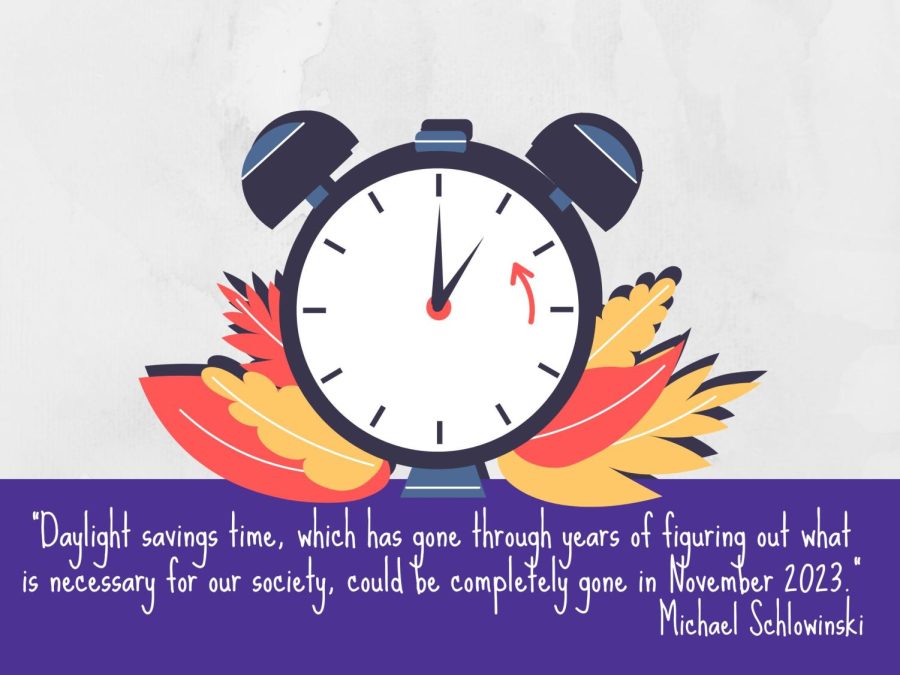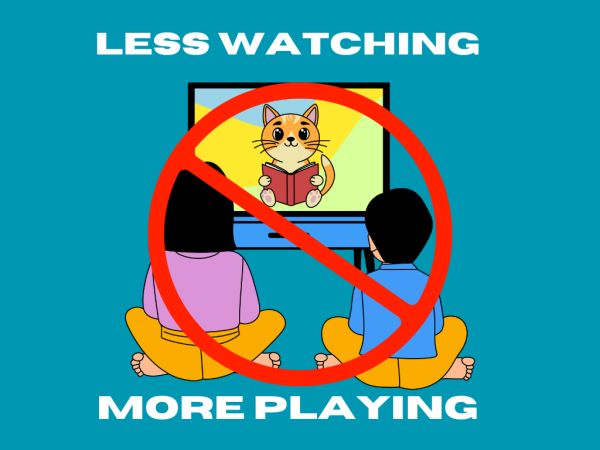‘Falling back’ could be gone forever
photo or infographic by Michael Schlowinski
FALLING BACK. If a bill passes, daylight savings time could be a memory of the past.
Daylight savings has become a major part of how America sees the seasons across the country. They have become synonymous with longer afternoons in the winter and longer mornings in the summer. Falling back has been so ingrained in the culture that it almost now seems so obvious that it must happen, even though it has not always been this way. Some across the country believe that daylight savings should be inverted to how time originally worked, with a consistent time across all twelve months of the year. States have also agreed, slowly phasing out daylight savings or letting counties decide whether they should keep it or not. Finally within the past few months the senate passed a bill, the sunshine protection act, that was unanimously passed to remove the twice annual change of the time.
Daylight savings time is both important and unimportant to America, but at the end of the day it’s important to look at every side of the argument.
The United States Senate’s decision, while not addressing one of the most important problems in the United States today, is still important to address issues within the United States. This decision back in March of 2022 with support across the Senate made it seem like everything would get better through the passing of the bill, which would take effect in 2023 if passed by the house. Scientists and many legislative politicians have worked together to believe that the original useful nature of daylight savings time has become redundant within the recent years, even with the Energy Department advocating that daylight savings had saved about 0.5% of power daily then if the country went to the other system. A argument from the Journal of Clinical Sleep Medicine states that “The acute alterations in timing due to transitions to and from DST contribute to misalignment between the circadian biological clock and the light/dark cycle, resulting in not only acute personal disruptions, but significant public health and safety risks.” There are both pro’s and con’s on many different sides to this story and just based on surface level information on the topic, it’s almost obvious that daylight saving shouldn’t be an easy item to get rid of. Daylight savings time should be reevaluated to see how the people and experts consider daylight saving, but with states doing this across the country deciding to phase out daylight saving it seems obvious where the people are with the decision.
Daylight savings time, which has gone through years of figuring out what is necessary for our society, could be completely gone in November 2023. Change by the people and our government is necessary for it is important for our country to function and without the agreement can lead to devastating issues. The concurrent agreement over daylight savings could be a sign of how all of America might all agree on certain issues and bring a new wave of stability to the nation if this bill is passed. This bill passing could also divide the nation even further if all the facts aren’t looked at completely. It’s always important to see both sides of the story, even when the issue does not seem to be at the forefront of American politics.
Your donation will support the student journalists of Willis High School. Your contribution will allow us to purchase equipment and cover our annual website hosting costs.

Michael Scholwinski is a 1st year newspaper staff member who has been active in many aspects of school life. A previous football player and current wrestler,...







